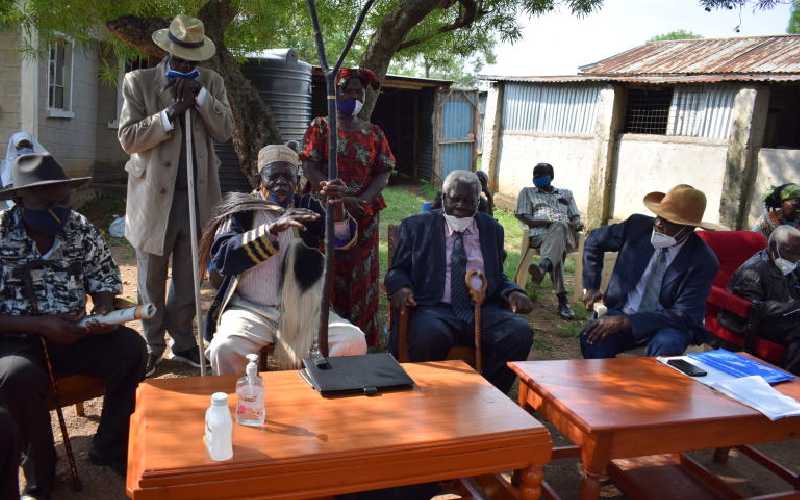×
The Standard e-Paper
Smart Minds Choose Us

Members of the Luo Council of Elders in Kendu Bay town during a meeting on August 17, 2020. [James Omoro]
This is in reference to the article titled, “Why women pay for sex with strangers after husbands’ death”, which appeared in The Standard on February 14, 2022.